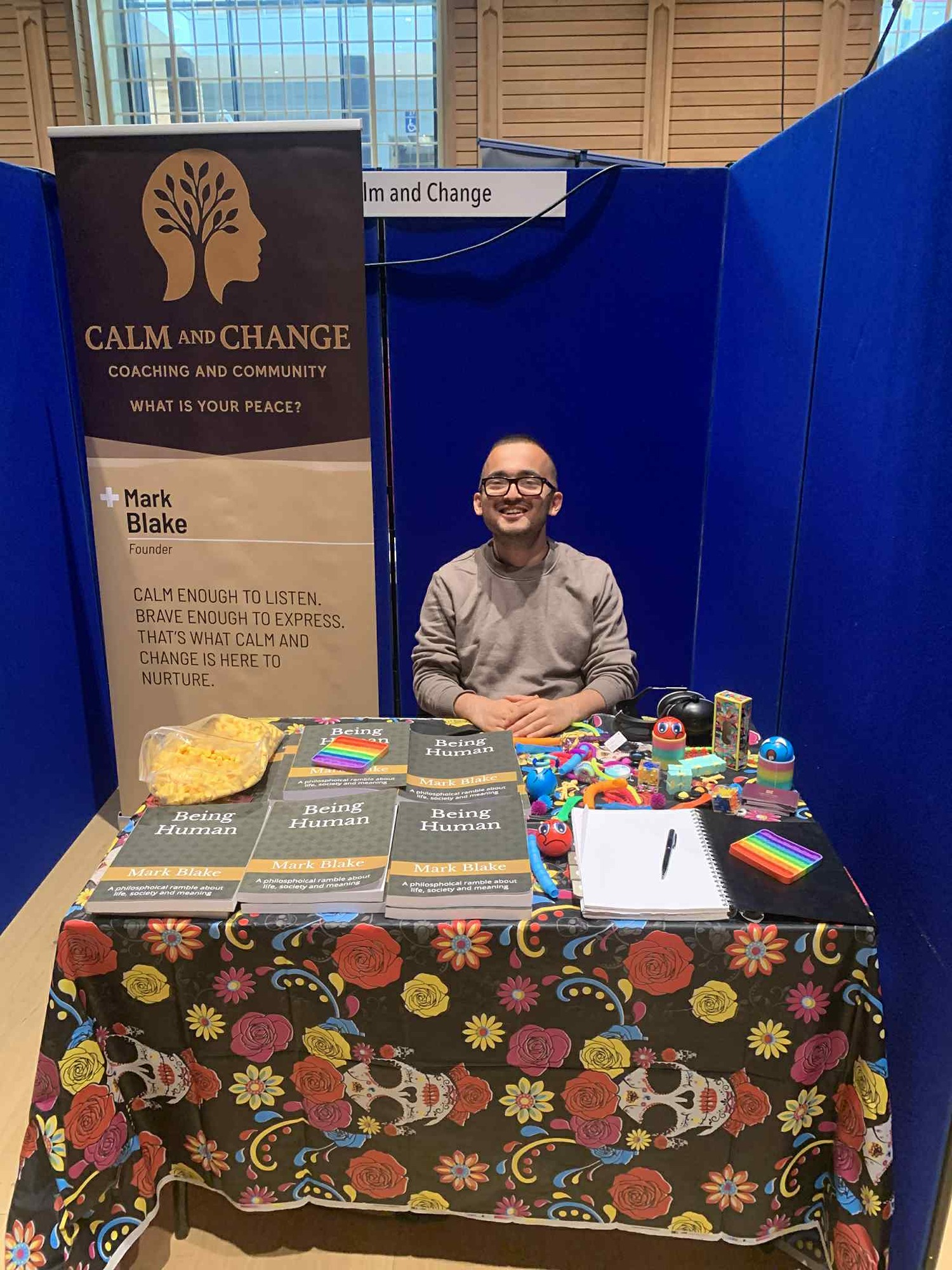Conversation Coaching
Lets find your voice together
Conversation Coaching supports people who want their conversations to lead to real understanding without shrinking, performing, or losing themselves under pressure.
This work is for the conversations that actually shape your life and work:
speaking up in meetings or reviews, naming boundaries or misunderstandings, talking about mental health with family or colleagues, navigating politically sensitive topics, or staying present when values, identity, belief, or power are in play.
At the centre of this work is your whole voice, the mix of emotion, thinking, values, lived experience, and context that shapes how you speak and how you’re heard.

Understanding Yourself
Staying grounded in your own experience
You learn to notice what shapes your responses in the moment, such as emotion, pressure, self-story, or protective habits, and how to stay present without being overwhelmed. For example, practicing a simple grounding technique, such as a deep-breathing exercise or box breathing, can help you center yourself before and during challenging discussions. This allows you to maintain focus and composure, fostering clearer, more effective communication. We can also tell you ways to ask for clarification, in the middle of a conversation,
This might include preparing for a difficult meeting, understanding why certain conversations keep derailing, or making sense of why you freeze, over-explain, or shut down when the stakes are high.

Understanding Others
Listening without losing yourself
You build skill in recognising what may be shaping the other person’s communication — their needs, constraints, emotional logic, and pressures.
This helps in conversations such as negotiating expectations at work, responding to scepticism or resistance, or staying connected when perspectives, values, or beliefs differ.

Staying Connected Under Pressure
Staying Connected Under Pressure
Bringing truth and care together
You practise staying engaged when conversations become charged politically, emotionally, or relationally.
This includes learning how to:
set boundaries without escalating
name what matters without moral posturing
respond deliberately rather than automatically
stay in conversation without appeasing, provoking, or withdrawing
This is particularly useful in environments where people feel forced to choose between silence and conflict.

Speaking with Integrity
Hold your values with steadiness, speaking in ways that reflect them and your experiences, while also taking responsibility for your impact.
This helps during conversations about differences, disagreements, leadership decisions, or community issues, where clarity and care matter. For instance, Conversation Coaching can lead to positive outcomes such as improved team morale, enhanced collaboration, and smoother conflict resolution. With this approach, you can:
Speak honestly without holding back, pretending, or over-editing yourself.
Share your needs and boundaries without causing unnecessary conflict.
Navigate differences and disagreements while staying connected.
Approach difficult conversations with more clarity and confidence.
The result is a way of communicating that feels like your own—grounded, calm, and supportive of real understanding.

Pricing
1 to 3 Sessions £60 to £180
A focused reset that helps you understand your whole voice and speak with clarity and steadiness — even when conversations are uncomfortable, charged, or socially risky..
3 to 6 sessions
£180 to £360
A deeper exploration that strengthens your ability to speak with integrity, understand others without losing yourself, and stay steady in conversations across difference, disagreement, and pressure.
12 sessions £720
A sustained process that reshapes your internal narratives, deepens emotional and intellectual closeness, and builds a grounded voice you can rely on in high-stakes, uncomfortable, or politically sensitive conversations.
Want to Explore This Together?
If you want support with meaningful conversations at work, home, or in your community, reach out for a confidential discovery call to discuss your needs and how we can help. Email: [email protected]
Book a call: https://calendly.com/markblake222/online-tea-with-mark